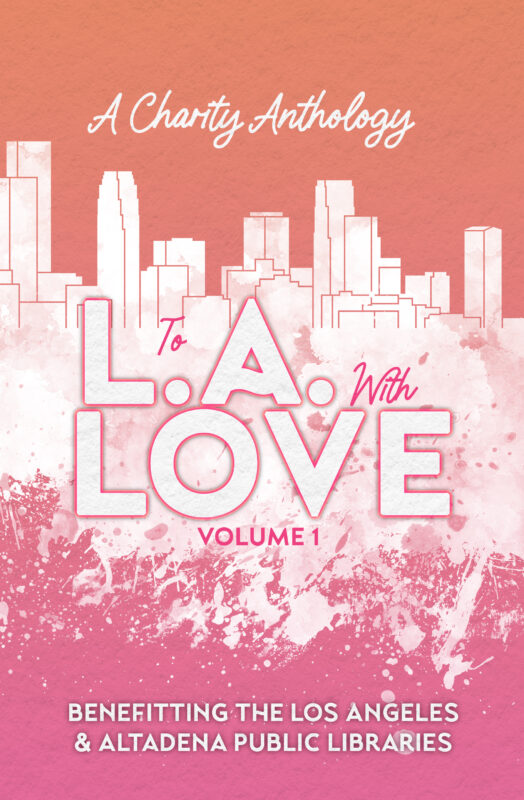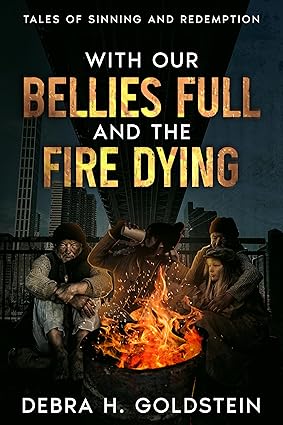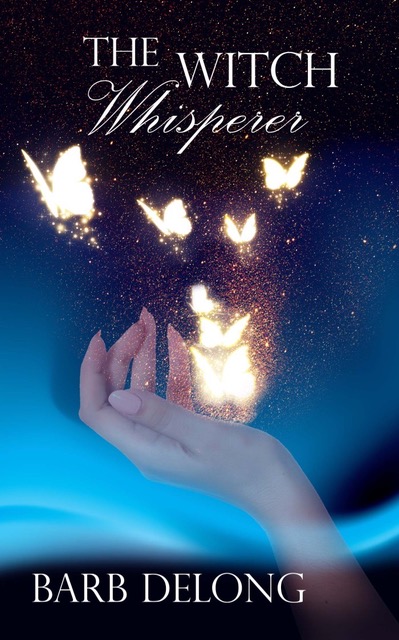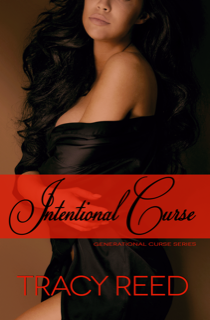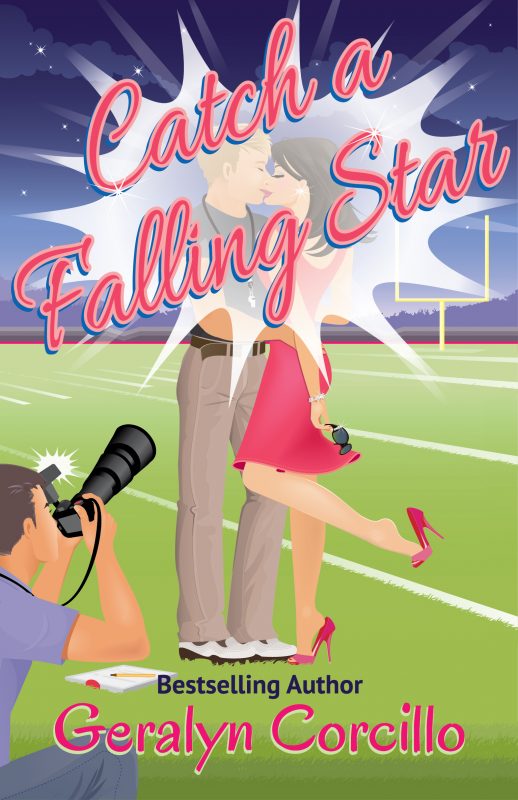Character Flaw(less)
February 16, 2017 by Rebecca Forster in category The Write Life by Rebecca Forster tagged as #amwriting, Rebecca Forster
0 0 Read more
Indie Doesn’t Mean Independent
January 15, 2017 by Rebecca Forster in category The Write Life by Rebecca Forster, Writing: It's a Business tagged as indie publishing, Rebecca Forster. writing Just before Christmas, a new author asked me how she might get more exposure. I’m sure she was waiting for some social media insights or advertising suggestions. Instead, I introduced her to Marianne Donley, one of my first writing friends.
Just before Christmas, a new author asked me how she might get more exposure. I’m sure she was waiting for some social media insights or advertising suggestions. Instead, I introduced her to Marianne Donley, one of my first writing friends.0 0 Read more
Heck Yeah! Lawyers are so Appealing
September 15, 2011 by Rebecca Forster in category The Write Life by Rebecca Forster tagged as Adventures in Writing, characterization, courtroom drama, Craft, lawyers, legal fictionIf you are a lawyer, a judge, a clerk, a bailiff, I love you. Really, I do. And so do millions of fiction readers. They can’t get enough of you, in and out of the courtroom. In my book* you are exciting, intelligent, mysterious, courageous, resourceful, thoughtful, witty, well-spoken and you are heroic. Of course, there are times when you are vicious, deceitful, brilliantly cold and cruel and that is pretty nifty, too.
I am married to a judge (he’s pretty sedate) but he was once a lawyer and that is how my fascination with you all began. Yet, years of trial watching, staff chatting and transcript reading has created a bizarre obsessive/compulsive need to figure you all out. Since I haven’t been able to, I can at least explain why you are irresistibly inspiring to this novelist and fascinating to those who love to read about you.
1) You speak legalese. It is like French: mysterious, irresistible, intimidating. Throw in a little Latin – a quid pro quo or prima facia – and you can melt a woman’s resolve and strike fear into the hearts of mortal men.
2) You are confident. Is there a super- secret-double-indemnity-swear-on-your-mother’s-grave-and-never-tell class that teaches you how to argue any and every point of view with grace and conviction? **
3) Bad guys listen to you. They even pay you to tell them what to do. That makes you a little edgy by association and who doesn’t like a bad boy -or girl?
4) You’re altruistic, defending bad people because you believe everyone deserves a defense.
5) You’re altruistic, prosecuting bad guys because you believe in justice.***
6) You are eye-candy. From the couture clad divorce-attorney-to-the stars, to the public defender sporting a plaid jacket and pony tail and the plaintiff’s lawyer in that Italian suit you turn courthouse hallways into runway.
7) You are funny. Sometimes you mean to be funny. Either way, a funny attorney is charming.
8) You are excellent secret keepers, which is not to be confused with being trustworthy. Though I believe you are trustworthy, that is a point of debate.
9) You are curious and tenacious.
10) You are heroes and not just in the literary sense. In real life you (and your expertise) are often the only things standing between a person losing something important to them: their children, their fortune, their reputation, their freedom and, yes, their life.****
*Actually, in all my books since I write legal thrillers.
**This also means that your significant other, children or parent can never win an argument. Experience tells me, the only recourse a normal person has when arguing with a lawyer is to cry and proclaim: “You are right, you are always right.” Works for me.
***A characteristic that make you the perfect inspiration for novels and films.
****You have my permission to show this list to anyone who questions your lovability, capability or worth. You may also use the aforementioned in advertising, closing arguments, opening statements and speed dating.
Heck Yeah! Writing Together Can Be….Fun?
August 15, 2011 by Rebecca Forster in category The Write Life by Rebecca Forster tagged as A Writer's Life, brother, collaboration, friends, mother, sister, sonI went to a movie I had been excited to see and was sorely disappointed. The story was thin, the plot holes deep and characterization shallow. When I saw four writers credited for the script, I realized why the movie never gelled. Odd slices of brilliance had flashed and fizzled in a jumble of visions, styles and pressure to perform.
Which leads me to the question of the day: How do creative partnerships thrive and turn out one saleable, seamless product? To answer that question, I joined Scott Gordon, a superior court judge and author, who partnered with Alex Abella, a seasoned nonfiction writer, to publish Shadow Enemies: Hitler’s Secret Plot against the United States and Debra L. Martin who teams with her brother, David W. Small, on the Rule of Otharia fantasy books. Then I threw in my two cents because my son and I partnered on two book-to-screen adaptation projects.
 The plan: Does there have to be one?
The plan: Does there have to be one?
Rebecca: Our plan was to adapt my books for the screen.* The project turned out to be more intricate than I ever imagined. While the skeleton of the story was there, a screenplay was completely different from a novel format. I had to lean on Alex’s expertise but first I had to acknowledge that, in this arena, he knew better than I did. I wrote the first draft then we sat for hours at the kitchen table going over every line, stage direction and piece of dialogue until we got it right.
Scott: We started from a solid foundation of factual material and a subject that intrigued both of us. Alex and I shared research responsibilities. Once we had all the information we could gather, we locked ourselves in the law library (with gallons of Diet Coke) and came out only when we had a very detailed outline. Alex used his amazing narrative skills to describe how Hitler’s spies were recruited, trained and landed in full Nazi uniforms on our shores. Because of my legal background, I picked up the story as it traveled through the court system, the presidential politics and military tribunal. We definitely played to our strengths.
 Deb: Luckily, my brother and I share a love of the fantasy genre and specifically of psi powers (i.e. telepathy, etc.) so we had a focus. The planning process was extensive and time consuming. We had to share our individual visions for the book and combine them so that we could build the characters and the fictional society from the ground up. For us planning and immersing ourselves in all the details were critical before we ever began to write.
Deb: Luckily, my brother and I share a love of the fantasy genre and specifically of psi powers (i.e. telepathy, etc.) so we had a focus. The planning process was extensive and time consuming. We had to share our individual visions for the book and combine them so that we could build the characters and the fictional society from the ground up. For us planning and immersing ourselves in all the details were critical before we ever began to write.
Execution: Two people/one voice
Rebecca: Because we were working in visuals, voice wasn’t as big a factor as it would have been for a novel. This project was about pacing. Our age difference really got in the way, not our talents. When we were working on our romantic comedy my sensibilities were from the Carey Grant era and his were aligned with The Hangover. With our psychological thriller I had already created a wonderful villain in the book and plot points that I thought were chilling. Alex kicked them up ten notches so those same points became gruesome. I can honestly say, he made both projects thrilling while he acknowledged my expertise in characterization and plot trajectory.
Scott: Because we had divided the subject matter so specifically, we each wrote our sections. When it was time to edit, we were extremely diligent. Through that process, there seemed to come a melding of both our voices resulting in what you called a ‘seamless third voice’.
Deb: We thought we could each write a chapter and then put them together. That plan was a disaster. Our success as co-authors came after much practice and creating detailed outlines not just for the book, but for each chapter. Still, we weren’t rigid and were always open to a chapter that was enhanced beyond the outline. I also continually edited as we went along. Then we both do a full edit, let the project sit and edit once more before publication. That smoothed out snags.
Rough Patches: Keeping the relationship sane & productive
Rebecca: If a mother and son could get divorced, we would have been after the first project. I would get upset because the source material was mine and I thought it was perfect. Alex, also thought it was perfect – for a different time and audience. The second time we worked together we laid out ground rules for resolving disagreements: stop working, reference sections of the source material that bothered us and offer alternative language until we found common ground.
Scott: What? Authors can have creative differences? Seriously, rough patches are a given when you have two authors and one project. I think our disagreements helped the creative process. We had to pull back, think of the project and be frank and direct. The process of hashing out our differences in viewpoints and style made the book richer.
Deb: Dave lives in California and I live in Boston, so when we got together, we worked extremely hard during our in-person visits. But there was one 14-hour editing session that disintegrated into raised voices and ego kicking. Suddenly, we started to laugh and called it a night. The next morning we came to a great compromise for the scene. Now we realize that you have to leave your ego at the door and work for the good of the story.
So, if you’re still thinking about teaming up, go for it. Before you do, make sure you’re a good match. Be civil, be honest, be clear about the purpose of the project, iron out the combined vision and recognize each other’s strengths and weaknesses. If you need a little inspiration pick up Shadow Enemies or Quest for Nobility in the Rule of Otharia series and see how two teams of pros turned out their impeccable books. And when my script becomes a movie, you’re all invited to join me and my partner for the premier – we’ll buy the popcorn.
*One script is in development, one is with producers and new books are always in the pipeline.
0 0 Read moreOh Heck! E-rotica or E-romance?
June 15, 2011 by Rebecca Forster in category The Write Life by Rebecca Forster tagged as Digital only publishing, editor, erotic romance, erotica, Rebecca Forsterby Rebecca Forster
Oh, that word erotica. Written, it looks naked and naughty; spoken it sounds enticing and exciting. Close your eyes and – well, only you know what images it conjures up. Which brings us to the topic of the day: When it comes to sexy books, where do both reader and writer draw the line between erotica and steamy romances?
The Editor/Publisher: Normally, this is not a topic I would have visited but a few things have caught my eye in the last few years. First, erotica started being pulled into the mainstream of my local bookstore. Second, category romance became more inventive and definitely steamier. Finally, the advent of E-books and independent publishing allows more sexually explicit material do be read in utter privacy. Think of your Kindle or Nook as the new brown paper wrapper and there’s lots to put inside. Nookbooks (Barnes & Noble) offers 7,718 books defined as erotica; Kindle (Amazon), 24,901 (as of this writing). One online publisher reports that 12% of his offerings are listed as erotica but, in all instances, romance inventory is far greater.
That still left me curious as to the blurring of the line between erotica and steamy romance. Audrey LeFehr who edits books for Kensington’s Aphrodisia imprint as well as other genres was very clear about what she looks for. There are no ‘romance rules’ in erotica (one woman, one man, commitment no matter how steamy the sex). Rather erotica explores the boundaries of a woman’s sexual satisfaction without being depressing, degrading or seriously frightening. This could include same sex or multiple lovers.
The Erotic Author:
The reason an author decides to write erotica are basic: a burning story line, creative expression, pushing the boundaries of their art.- not to mention that the adult entertainment market is huge and there is money to be made.
Locklyn Swallow, author of numerous shorts including her most recent Love By Disguise, admits money was her initial motivation and her objectives have been met. While not making her a millionaire, the return on her short stories, published for digital download and reasonably priced, has been greater than expected.

 I.M.Beckett, a pseudonym for a traditionally published author, saw erotica as a challenge after reading a classic erotic novel. According to Beckett, there was an extraordinary beauty that came from linking life and death to sexual encounters with an emphasis on writing style, not just sexual description. The Traveler: An Erotic Journey (part I) is a nod to noir erotica.
I.M.Beckett, a pseudonym for a traditionally published author, saw erotica as a challenge after reading a classic erotic novel. According to Beckett, there was an extraordinary beauty that came from linking life and death to sexual encounters with an emphasis on writing style, not just sexual description. The Traveler: An Erotic Journey (part I) is a nod to noir erotica.
Victoria Hawke, a newcomer to the erotic scene with her Wet, Wild &Wacky, 3 sexy shorts that have a wonderful, tongue in cheek energy, liked that erotica offered a greater range for readers. With erotica, there are not tonal rules that need to be adhered to as in traditional genre writing.
All three met their original objectives but then went on to say that, as authors, the genre allowed them to grow in ways they never expected. Erotic readers, they believe, don’t just want to be sexual voyeurs. These readers also want to be invested in character and plot. Short or long, erotica must deliver on all traditional literary levels and then one more – the sexual narrative.
The Reader:Recently, I saw a reader on an Amazon Kindle thread apologize for being an avid romance reader. That doesn’t happen very often any more. The days of being embarrassed about enjoying a romantic reading experience are just about over. Not so for erotica.
There were some erotica threads on the boards but no one answered my query about why erotica was a genre of choice. Surprising? No. Erotica is, perhaps, the most personal of all reading choices. As with all genres, there is a range within erotica that will blur the lines. What one person calls erotica, another will deem a hot romance and yet someone else will swear it crosses the line to pornography. Then again, isn’t it the same for mainstream genres? What some call literature, others dismiss as commercial fiction.
Bottom line, E-books have brought both erotic readers and authors out of the shadows. I for one will be curious to see what the future brings for this genre. Will it bend toward true E-rotica or will it somehow be embraced and engulfed by E-romance? One thing is for certain, as ownership of e-readers grows erotica options will find ever broader distribution. It will be up readers to determine how successful this genre – like all genres – will be.
1 0 Read moreAffiliate Links
A Slice of Orange is an affiliate with some of the booksellers listed on this website, including Barnes & Nobel, Books A Million, iBooks, Kobo, and Smashwords. This means A Slice of Orange may earn a small advertising fee from sales made through the links used on this website. There are reminders of these affiliate links on the pages for individual books.
Search A Slice of Orange
Find a Column
Archives
Featured Books
To L. A. With Love Volume 1
When wildfires damaged two beloved Los Angeles public libraries in January 2025, the romance community answered with heart.
More info →WITH OUR BELLIES FULL AND THE FIRE DYING: TALES OF SINNING AND REDEMPTION
Family and friends, their sins and their sometimes redemption.
More info →
INTENTIONAL CURSE
Before Dr. Eric King was with Kyla, he chased Olivia Bennett.
More info →CATCH A FALLING STAR
A TV star tells the paparazzi she's engaged to a high school football coach, but she doesn't tell him … because she barely even knows him.
More info →Newsletter
Contributing Authors
Search A Slice of Orange
Find a Column
Archives
Authors in the Bookstore
- A. E. Decker
- A. J. Scudiere
- A.J. Sidransky
- A.M. Roark
- Abby Collette
- Alanna Lucus
- Albert Marrin
- Alice Duncan
- Alina K. Field
- Alison Green Myers
- Andi Lawrencovna
- Andrew C Raiford
- Angela Pryce
- Aviva Vaughn
- Barbara Ankrum
- Bethlehem Writers Group, LLC
- Carol L. Wright
- Celeste Barclay
- Christina Alexandra
- Christopher D. Ochs
- Claire Davon
- Claire Naden
- Courtnee Turner Hoyle
- Courtney Annicchiarico
- D. Lieber
- Daniel V. Meier Jr.
- Debra Dixon
- Debra H. Goldstein
- Debra Holland
- Dee Ann Palmer
- Denise M. Colby
- Diane Benefiel
- Diane Sismour
- Dianna Sinovic
- DT Krippene
- E.B. Dawson
- Emilie Dallaire
- Emily Brightwell
- Emily PW Murphy
- Fae Rowen
- Faith L. Justice
- Frances Amati
- Geralyn Corcillo
- Glynnis Campbell
- Greg Jolley
- H. O. Charles
- Jaclyn Roché
- Jacqueline Diamond
- Janet Lynn and Will Zeilinger
- Jaya Mehta
- Jeannine Atkins
- Jeff Baird
- Jenna Barwin
- Jenne Kern
- Jennifer D. Bokal
- Jennifer Lyon
- Jerome W. McFadden
- Jill Piscitello
- Jina Bacarr
- Jo A. Hiestand
- Jodi Bogert
- Jolina Petersheim
- Jonathan Maberry
- Joy Allyson
- Judy Duarte
- Justin Murphy
- Justine Davis
- Kat Martin
- Kidd Wadsworth
- Kitty Bucholtz
- Kristy Tate
- Larry Deibert
- Larry Hamilton
- Laura Drake
- Laurie Stevens
- Leslie Knowles
- Li-Ying Lundquist
- Linda Carroll-Bradd
- Linda Lappin
- Linda McLaughlin
- Linda O. Johnston
- Lisa Preston
- Lolo Paige
- Loran Holt
- Lynette M. Burrows
- Lyssa Kay Adams
- Madeline Ash
- Margarita Engle
- Marguerite Quantaine
- Marianne H. Donley
- Mary Castillo
- Maureen Klovers
- Megan Haskell
- Melanie Waterbury
- Melisa Rivero
- Melissa Chambers
- Melodie Winawer
- Meriam Wilhelm
- Mikel J. Wilson
- Mindy Neff
- Monica McCabe
- Nancy Brashear
- Neetu Malik
- Nikki Prince
- Once Upon Anthologies
- Paula Gail Benson
- Penny Reid
- Peter J Barbour
- Priscilla Oliveras
- R. H. Kohno
- Rachel Hailey
- Ralph Hieb
- Ramcy Diek
- Ransom Stephens
- Rebecca Forster
- Renae Wrich
- Roxy Matthews
- Ryder Hunte Clancy
- Sally Paradysz
- Sheila Colón-Bagley
- Simone de Muñoz
- Sophie Barnes
- Susan Kaye Quinn
- Susan Lynn Meyer
- Susan Squires
- T. D. Fox
- Tara C. Allred
- Tara Lain
- Tari Lynn Jewett
- Terri Osburn
- Tracy Reed
- Vera Jane Cook
- Vicki Crum
- Writing Something Romantic
Affiliate Links
A Slice of Orange is an affiliate with some of the booksellers listed on this website, including Barnes & Nobel, Books A Million, iBooks, Kobo, and Smashwords. This means A Slice of Orange may earn a small advertising fee from sales made through the links used on this website. There are reminders of these affiliate links on the pages for individual books.







